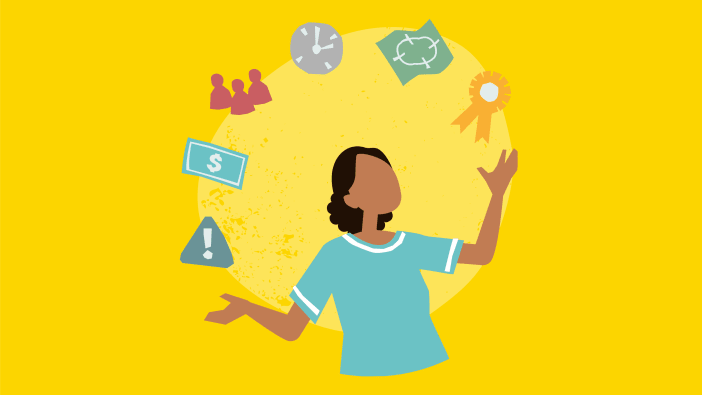Planning is important for financial sustainability. Start with your organisation’s vision and aims, and then look to see how that work could be funded. Stay focused on work that uses the skills, experience and knowledge you have within the organisation. Don’t plan your work or change your aims just to get easy funding.
Make a budget
When you are planning a project, note down all the funding that will be needed to achieve your objectives. Remember to look beyond the basic project costs:
- Include administrative costs, staffing and office space.
- Budget for fundraising costs – you usually have to spend money to raise it.
- Put aside some money each year to provide for building repairs, renewal of equipment or unforeseen difficulties.
Be realistic
Look back at budgets and spending in previous years to provide a picture of actual costs. Think about trends such as annual salary increases.
Efficiency
Before thinking about how to raise new funds, check that you are using the resources you already have in the best way possible. Can you improve how you spend your money and time, to make your resources go further? When making an annual budget, think about the following questions:
- Is money being wasted on projects that are unsustainable?
- Are you learning from past projects, and making changes to improve new projects?
- How can you improve the quality and cost-effectiveness of projects?
- Do you waste money on administration, such as unnecessary telephone calls and paper? Do you make unnecessary journeys in the organisation’s vehicle?
- How do you decide what is a valuable use of your time? Do you spend enough time in prayer at work?
Only consider changes that will not affect the quality of the work you do.
Diversify your sources of income
Look at where your organisation gets its income from. There are many possible sources such as:
- individual donors, local people
- local churches
- income generation by selling goods or services
- business
- trusts or foundations
- local government
- national government
- funding from other countries such as government funding agencies and international NGOs.
If an organisation gets all its income from just one source or donor, then it is very vulnerable. If that source of income stops, the organisation will have no income, and would have to close. When an organisation has funding from several different sources, it is less vulnerable. If one source dries up, the organisation will other sources to rely on. However, many different sources also mean higher administration costs in raising the funds and keeping track.
Volunteers
Volunteers are a valuable resource for development organisations. They do not require wages but can help with administrative tasks, fundraising events, and carry out tasks that support other staff in their work, such as maintenance of the office building and driving vehicles. Sometimes volunteers can offer useful technical expertise. Volunteers should be valued and treated as well as paid staff. New volunteers should be interviewed and references taken up to ensure they are suitable.
More fundraising ideas
- Join a fundraising network. Are there other organisations in the country doing similar work? Can you join together to share ideas and news about funding opportunities?
- Hold a fundraising event. Be creative. Raising awareness is key to raising funds from individuals and churches. Remember that a successful event needs lots of thinking and planning.
Adapted from ROOTS Fundraising by Rachel Blackman








